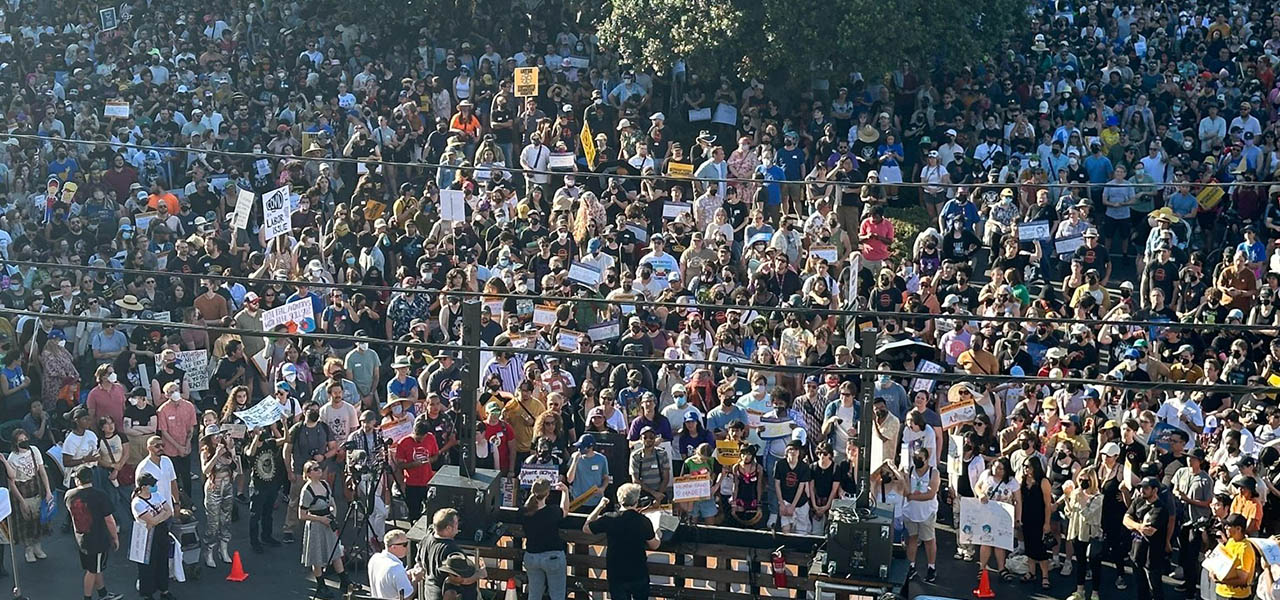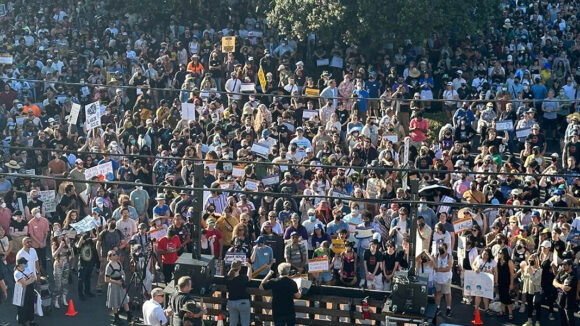

Despite A Large Number Of Detractors, Animation Guild Members Ratify New Contract
Member of The Animation Guild (TAG), IATSE Local 839, received an early Christmas present today, with the announcement that its members have ratified a new three-year contract with film and tv animation studios. The deal runs from 2024-2027.
The successful ratification of the contentious deal concludes a negotiating process that began last August.
Despite nearly one-quarter of TAG members voting against the deal, a supermajority – 76.1% – voted in favor of ratification. The Guild says that more members participated in the voting process than ever before in this cycle, highlighting the feeling among many industry workers that this is an existential battle for the future of the industry.
Some of the key gains secured in the agreement include:
- Increases to health and pension funds with no cuts to healthcare benefits or added costs to members.
- Wage increases: 7% in the first year, 4% in the second, and 3.5% in the third.
- AI protections including written notifications and the ability to consult with the production and identify alternative non-GenAI tools.
- Increases to on-call hours and dismissal pay.
- New bereavement leave and additional sick days.
- Recognition of Juneteenth as a holiday.
- Craft-specific gains, including staffing minimums for writers and significant wins for storyboard artists.
A timeline of the negotations can be found on the Guild’s contract website, while the memorandum of agreement can be viewed in its entirety here (download PDF).
Steve Kaplan, TAG’s business representative, said in a statement:
I want to recognize the incredible work that the Negotiations Committee put into seeing this agreement reached and ratified. This agreement is the next step forward in our goal to create the strongest contract for our members. The advancements made here are plenty, but there is also much work to be done with regard to addressing the priority matters that were not fully answered. The membership made clear to us that there is a need for more focus on generative artificial intelligence, and we will attack the issue through a multi-faceted approach including lobbying for effective legislation, advocating for tax incentives for human-made work, and grieving against potential abuses.
The ratification of the deal is not without controversy with an exceptionally high percentage of TAG’s membership voting against the current deal. Compare this to the Writer Guild of America’s last contract in 2023, when 99% of the membership voted in favor of the deal.
The Animation Guild’s executive board said that 90% of its negotiations committee team backed the agreement, showing a disconnect between the committee and the rank-and-file voters who rejected the deal in a far larger number than those who negotiated the deal.
Notably, multiple members of the negotiating committee publicly spoke out on the terms of the deal and said that they would vote no on the deal. Among the most high-profile dissenters was The Mitchells vs. the Machines director Michael Rianda, who served on the AI negotiating committee. Rianda wrote on Instagram:
I believe the AI and outsourcing protections in this contract are not strong enough — and in my opinion — could lead to the loss of a lot of jobs. Real members lives could be hurt by not having these protections.
Among Rianda’s criticisms was that the deal did not secure any staffing minimums that could “protect crew sizes from AI job loss.” (It should be pointed out that TAG did secure staffing minimums for the writers it represents, but not other animation crafts. TAG’s parent, IATSE [International Alliance of Theatrical Stage Employees], which represents numerous live-action crafts through its other locals has been generally unsuccessful in securing overall staffing minimums for any of the guilds it oversees.)
Kelly Lynne D’Angelo, another member of TAG’s AI committee, similarly wrote on Blue Sky that she would vote no on the contract:
Voting “No” could give us the leverage we need to actually get substantial gains. Does it mean we may lose other things negotiated? Yes. But do those things trump more needs in AI, Outsourcing, and Staffing Minimums? That’s YOUR call to make. This vote needs to be overwhelmingly “No” to do that. This is a battle for our lives and livelihoods. And the future of all animation. I cannot stand by what we have and say in good faith and with a full chest that our industry will resemble anything it does right now by the next negotiation.
Another key detractor was Amphibia creator Matt Braly, who wrote on X:
The negotiations committee did an amazing job and there are great gains for writers/color designers/sheet timers…but there is nothing here to protect us from being replaced with AI. Just my take. Under this agreement a studio can hand a board artist an AI generated script and expect them to board it. Also under this agreement, board artists do not receive additional compensation for adjusting dialogue or fixing writing. So we could be asked to fix an AI script in boards…for no extra compensation.
Prior to the vote, TAG attempted to dismiss the detractors, by releasing a statement suggesting that the people against the contract represented “a small minority.” In that same statement, it essentially admitted that it was powerless to stop the looming threat of AI in the animation industry through its current contract. It said:
It’s also important to understand that union contracts alone cannot solve this challenge, as seen in the recent contracts of other entertainment unions with far larger memberships and leverage than our own. Real long-term change requires broader solutions, alongside the GenAI guardrails we have gained in this contract. Changes include those within the Union—enforcement of existing protections, lobbying through TAG’s AI Watchdog Committee, organizing studios across the U.S. — and beyond, such as robust government regulations, public support for human-made work, and tax incentives that support human creativity.
With AI evolving at breakneck pace, it remains a huge question mark as to how the technology will be implemented in the animation industry by 2027, when TAG will negotiate its next contract. But what is clear is that a large percentage of animation industry workers are deeply concerned about the future of the industry and how their livelihoods will be affected by the technology.
Photo at top via The Animation Guild account on X.

